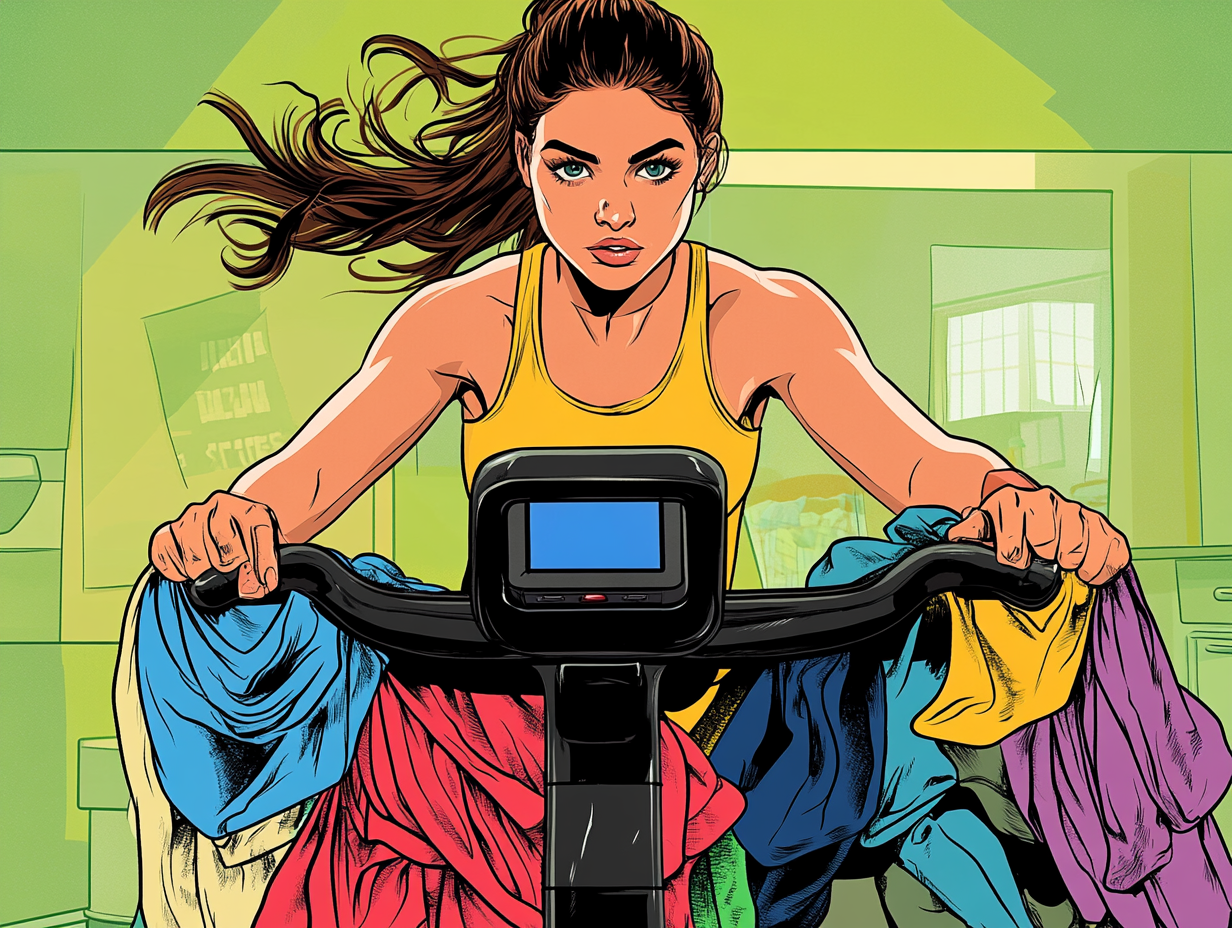Date My Brand: Peloton
It’s time for you to move out.
During Covid, I was convinced that only two things would come out of lockdown: babies and breakups. Well, my long-overdue breakup has finally arrived—and Peloton, my pandemic obsession, has to go.
The Whirlwind Romance
The brand burst onto the scene and absolutely accelerated (forgive the puns) during the pandemic. With gyms—and the world—closed, we were trapped at home in an endless cycle of virtual work-eat-drink-repeat, and suddenly that sleek black bike looked like salvation.
Before Peloton, SoulCycle ruled the spin scene—all sunshine and “unleash your inner warrior” vibes. Their brand was about in-person community: 50 of your closest sweat-mates pedalling together in a pitch-black studio while an instructor screamed motivational gems like, “We’re on a bike going nowhere—but you’re going somewhere!”
By contrast, Peloton was a study in modern minimalism. Chic, beautiful, and designed for serious athletes who rode at home. I remember thinking, Who would sign up for a spin class alone at home??? Famous. Last. Words.
The Honeymoon Phase
It didn’t take long before I was all in—or at least signed a long-term, high-interest relationship agreement. The bike? Fabulous. The classes? Genuinely great. The instructors? Cult-worthy. I was 100% committed to DJ Ben Aldis, spending countless hours pedalling to his pumping tracks while shamelessly fixated on his gun-show arms.
Founded in 2012, Peloton was born from a simple but powerful insight: people love studio fitness but struggle to fit it into their busy schedules. John Foley, a former Barnes & Noble exec, wanted to bring the boutique experience into the home using tech.
In 2013, the company launched a Kickstarter campaign to fund its first connected stationary bike, combining high-end hardware with live and on-demand classes streamed from its New York studio.
After growing a loyal online community, Peloton went public in September 2019 under the ticker PTON. Then the pandemic hit—and demand exploded. By mid-2020, they had millions of subscribers and sold-out bikes. Delivery vans became status symbols. In my San Francisco neighbourhood, people would peek through blinds when one pulled up—Peloton envy was real. I was the envy of my condo block.
It was such a rocket ship that Apple, Amazon, and Nike were all rumoured suitors. The brand had hardware, community, content, and cool. Like many retail traders whose investment strategy started and ended with Reddit’s @wallstreetbets, I even bought stock thinking this ride would never end.
The Relationship Takes a Turn
But then... it did.
As lockdown lifted and we could exercise outdoors again, the cracks started to show. Peloton had overbuilt inventory and overspent on manufacturing. Then came the cultural hit-job no one saw coming: Sex and the City killed Mr. Big—on a Peloton.
To their credit, Peloton clapped back fast with an overnight response ad starring a very-much-alive Chris Noth and instructor Jess King. It was funny. It was clever. But it was also too late. The fictional death had real-world consequences, wiping $1.8 billion off the brand’s value overnight. And when allegations against Noth surfaced just days later, Peloton had to pull the ad—doubling the PR whiplash.
The Inevitable Breakup
I ghosted. Slowly, subtly. First the rides stopped. Then the subscription lapsed. The shoes stayed in the cupboard. The bike became a high-end coat rack—an expensive, sleek monument to a passionate fling that quietly fizzled. Still beautiful, still technically functional… just not the right fit anymore.
And honestly? I felt bad about it.
I missed our rides. The clack of clipping in. The endorphin rush. That little badge for hitting a 10-day streak. Peloton had been there for me when the world shut down. It felt like leaving a friend who’d seen me through some weird times.
But I’d changed. I needed variety. Movement. A workout that didn’t start with “buffering.” Meanwhile, Peloton stayed frozen in that same corner, still trying to make DJ rides feel like magic. We were stuck in a rut. And no cooldown stretch was going to fix that.
Where are they now?
Like any ex trying to win you back, Peloton has been busy reinventing itself. The hardware’s still there, sure, but now the real action is on the app. You can stream workouts on Roku. Get your sweat on in Hilton hotel rooms. Even ride a non-Peloton bike, if you're into open relationships.
They’ve introduced new pricing tiers (including a freemium version), branched out into strength training, yoga, and outdoor runs, and are generally trying to be more flexible—less “exclusive spin cult,” more “wellness for the situation-ship era.”
It’s a respectable glow-up. And a quick check-in with friends and some are still totally committed. But for me? It’s giving “we can still be friends.” And I’m just looking for something different.
We’re Moving On
So yeah, it’s time. I’m saying goodbye to Peloton—along with the mat, two pairs of shoes, hand weights and the delusion that I might one day become a morning ride person again.
Well-priced. Lightly used. Emotionally available. If you’re looking for a rebound, hit me up.

